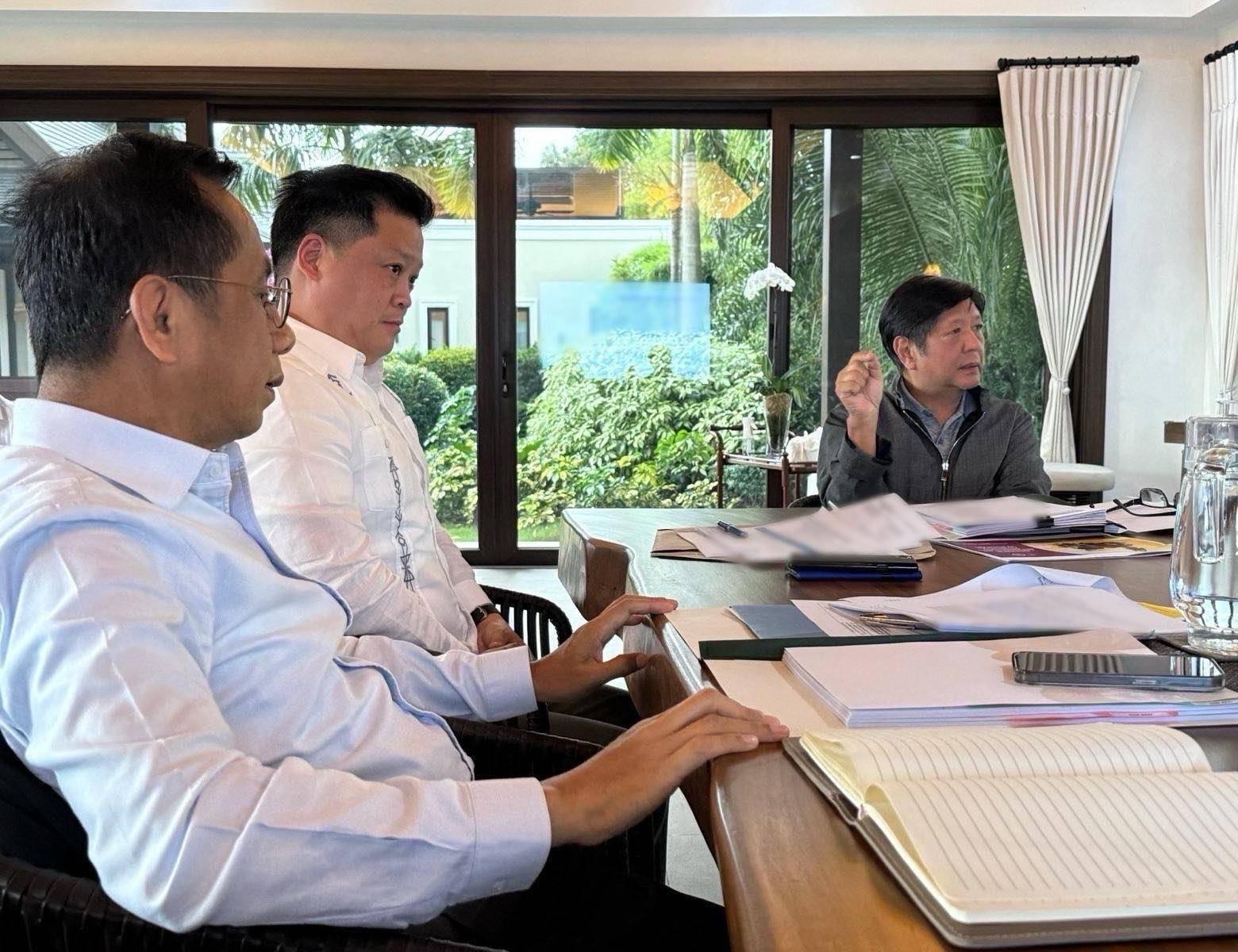Marcos meets Cabinet secretaries to discuss 2025 budget guidelines
At A Glance
- Marcos signed the 2025 budget after a thorough review on Dec. 30. He, however, vetoed P194 billion in line items, citing the need to align it with the government's priorities that directly address the people's needs.
President Marcos convened several members of his Cabinet in Malacañan on Friday, Jan. 10, to discuss the guidelines for programs and projects under the P6.235-trillion national budget for 2025.

In photos shared by the Presidential Communications Office (PCO), Executive Secretary Lucas Bersamin, National Economic and Development Authority (NEDA) Secretary Arsenio Balisacan, Department of Budget (DBM) Secretary Amenah Pangandaman, Department of Social Welfare and Development (DSWD) Secretary Rex Gatchalian, and Department of Labor and Employment (DOLE) Secretary Bienvenido Laguesma joined the President for the deliberations.
No other details about the meeting were provided at the time of publication.
Marcos signed the 2025 budget after a thorough review on Dec. 30. He, however, vetoed P194 billion in line items, citing the need to align it with the government's priorities that directly address the people's needs.
"While the final version of the budget reflects many of our shared priorities, some provisions required careful scrutiny," he said during the ceremonial signing. The 2025 budget was initially scheduled to be signed before Christmas.
"The Filipino people have spoken: every centavo must go to programs that truly uplift lives, strengthen communities, and secure the future development of the Philippines," he added.
Of the P194-billion vetoed items, P26.065 billion was for projects under the Department of Public Works and Highways (DPWH), and P168.240 billion was allocated under “Unprogrammed Appropriations.”
The President also pursued Conditional Implementation on specific items to ensure funds are utilized effectively, emphasizing that the government must not be merely a provisional solution, but address long-term issues.
"This way we ensure that its implementation will be strategic leading to the long-term improvement of the lives of qualified beneficiaries while guarding against misuse, duplication, and fragmented benefits," Marcos said.
"This approach is anchored on a simple yet profound truth: the appropriation of public funds must not break the public trust," he added.